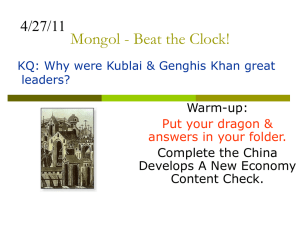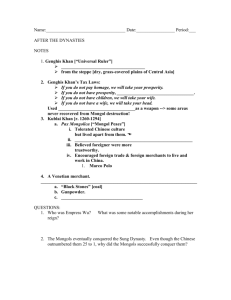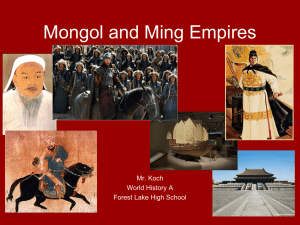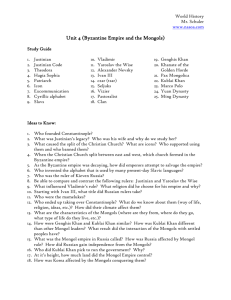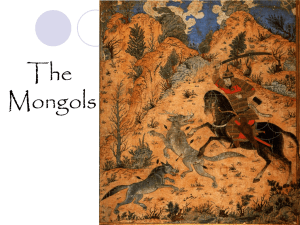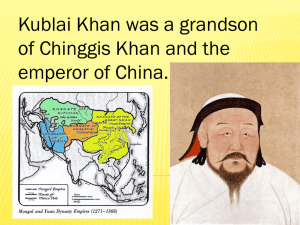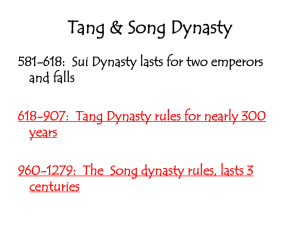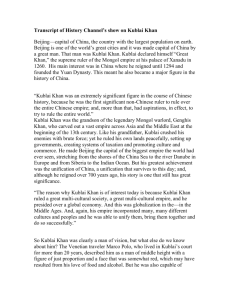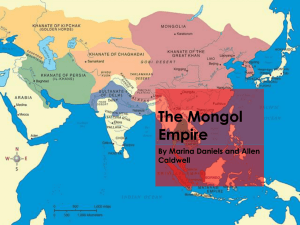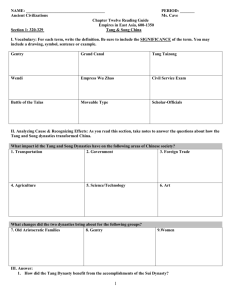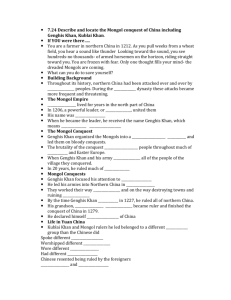The Mongols and China
advertisement
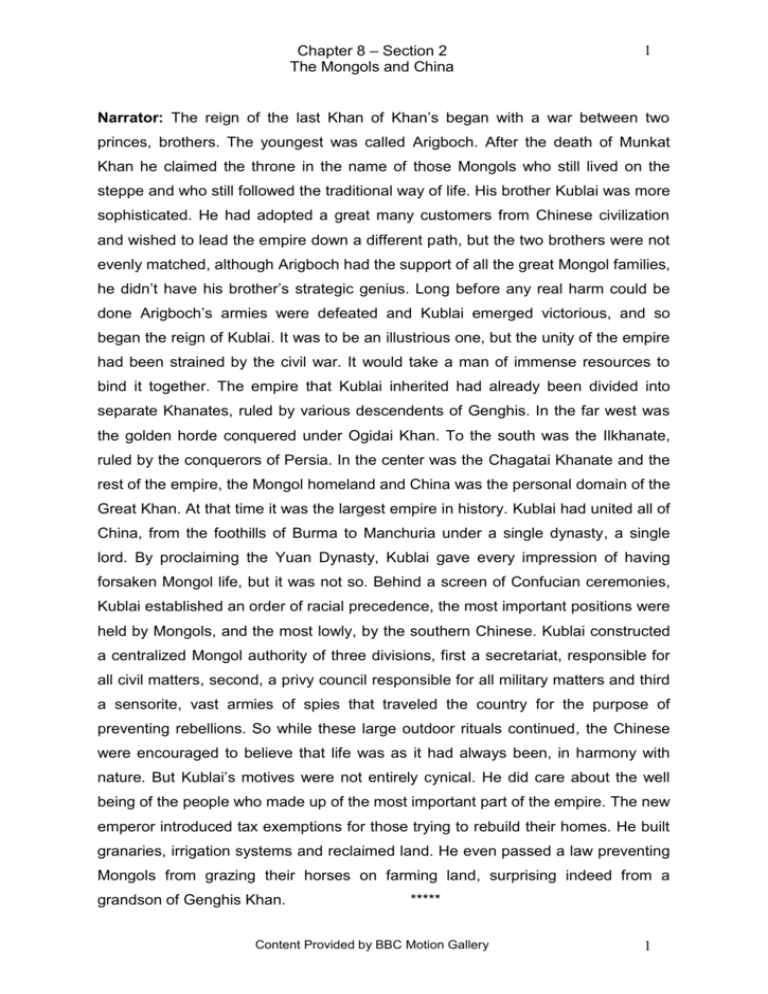
Chapter 8 – Section 2 The Mongols and China 1 Narrator: The reign of the last Khan of Khan’s began with a war between two princes, brothers. The youngest was called Arigboch. After the death of Munkat Khan he claimed the throne in the name of those Mongols who still lived on the steppe and who still followed the traditional way of life. His brother Kublai was more sophisticated. He had adopted a great many customers from Chinese civilization and wished to lead the empire down a different path, but the two brothers were not evenly matched, although Arigboch had the support of all the great Mongol families, he didn’t have his brother’s strategic genius. Long before any real harm could be done Arigboch’s armies were defeated and Kublai emerged victorious, and so began the reign of Kublai. It was to be an illustrious one, but the unity of the empire had been strained by the civil war. It would take a man of immense resources to bind it together. The empire that Kublai inherited had already been divided into separate Khanates, ruled by various descendents of Genghis. In the far west was the golden horde conquered under Ogidai Khan. To the south was the Ilkhanate, ruled by the conquerors of Persia. In the center was the Chagatai Khanate and the rest of the empire, the Mongol homeland and China was the personal domain of the Great Khan. At that time it was the largest empire in history. Kublai had united all of China, from the foothills of Burma to Manchuria under a single dynasty, a single lord. By proclaiming the Yuan Dynasty, Kublai gave every impression of having forsaken Mongol life, but it was not so. Behind a screen of Confucian ceremonies, Kublai established an order of racial precedence, the most important positions were held by Mongols, and the most lowly, by the southern Chinese. Kublai constructed a centralized Mongol authority of three divisions, first a secretariat, responsible for all civil matters, second, a privy council responsible for all military matters and third a sensorite, vast armies of spies that traveled the country for the purpose of preventing rebellions. So while these large outdoor rituals continued, the Chinese were encouraged to believe that life was as it had always been, in harmony with nature. But Kublai’s motives were not entirely cynical. He did care about the well being of the people who made up of the most important part of the empire. The new emperor introduced tax exemptions for those trying to rebuild their homes. He built granaries, irrigation systems and reclaimed land. He even passed a law preventing Mongols from grazing their horses on farming land, surprising indeed from a grandson of Genghis Khan. ***** Content Provided by BBC Motion Gallery 1
